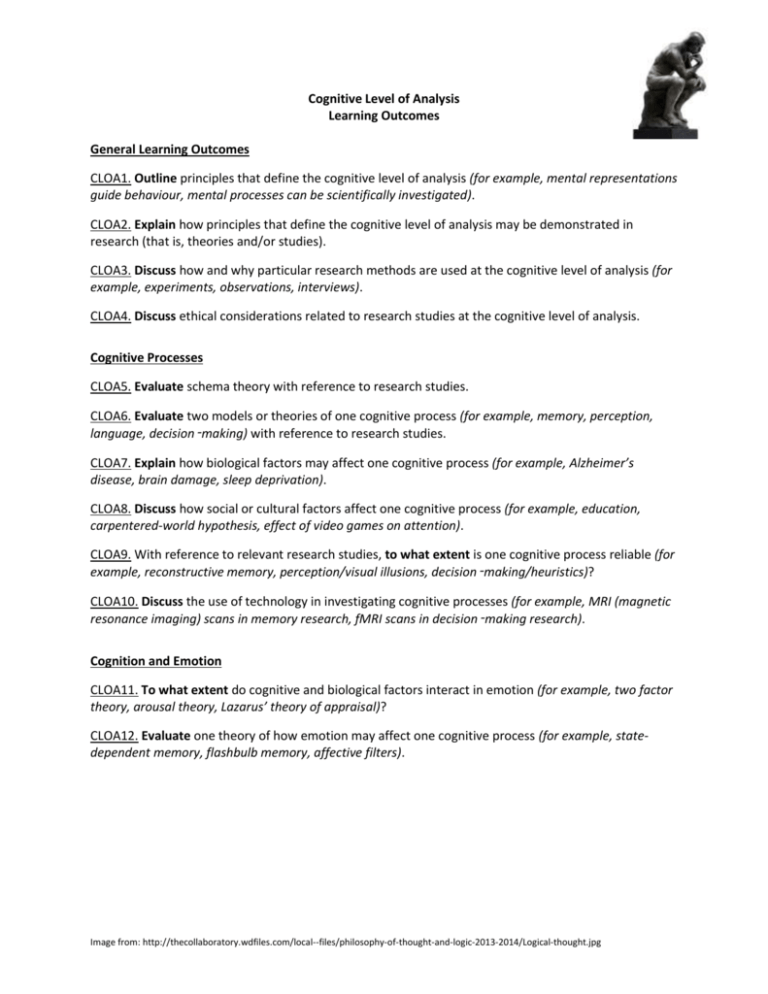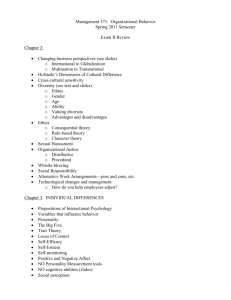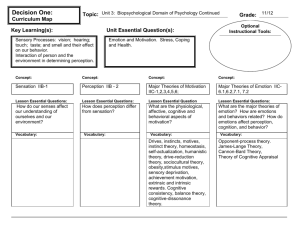Cognitive Level of Analysis
advertisement

Cognitive Level of Analysis Learning Outcomes General Learning Outcomes CLOA1. Outline principles that define the cognitive level of analysis (for example, mental representations guide behaviour, mental processes can be scientifically investigated). CLOA2. Explain how principles that define the cognitive level of analysis may be demonstrated in research (that is, theories and/or studies). CLOA3. Discuss how and why particular research methods are used at the cognitive level of analysis (for example, experiments, observations, interviews). CLOA4. Discuss ethical considerations related to research studies at the cognitive level of analysis. Cognitive Processes CLOA5. Evaluate schema theory with reference to research studies. CLOA6. Evaluate two models or theories of one cognitive process (for example, memory, perception, language, decision‑making) with reference to research studies. CLOA7. Explain how biological factors may affect one cognitive process (for example, Alzheimer’s disease, brain damage, sleep deprivation). CLOA8. Discuss how social or cultural factors affect one cognitive process (for example, education, carpentered-world hypothesis, effect of video games on attention). CLOA9. With reference to relevant research studies, to what extent is one cognitive process reliable (for example, reconstructive memory, perception/visual illusions, decision‑making/heuristics)? CLOA10. Discuss the use of technology in investigating cognitive processes (for example, MRI (magnetic resonance imaging) scans in memory research, fMRI scans in decision‑making research). Cognition and Emotion CLOA11. To what extent do cognitive and biological factors interact in emotion (for example, two factor theory, arousal theory, Lazarus’ theory of appraisal)? CLOA12. Evaluate one theory of how emotion may affect one cognitive process (for example, statedependent memory, flashbulb memory, affective filters). Image from: http://thecollaboratory.wdfiles.com/local--files/philosophy-of-thought-and-logic-2013-2014/Logical-thought.jpg






